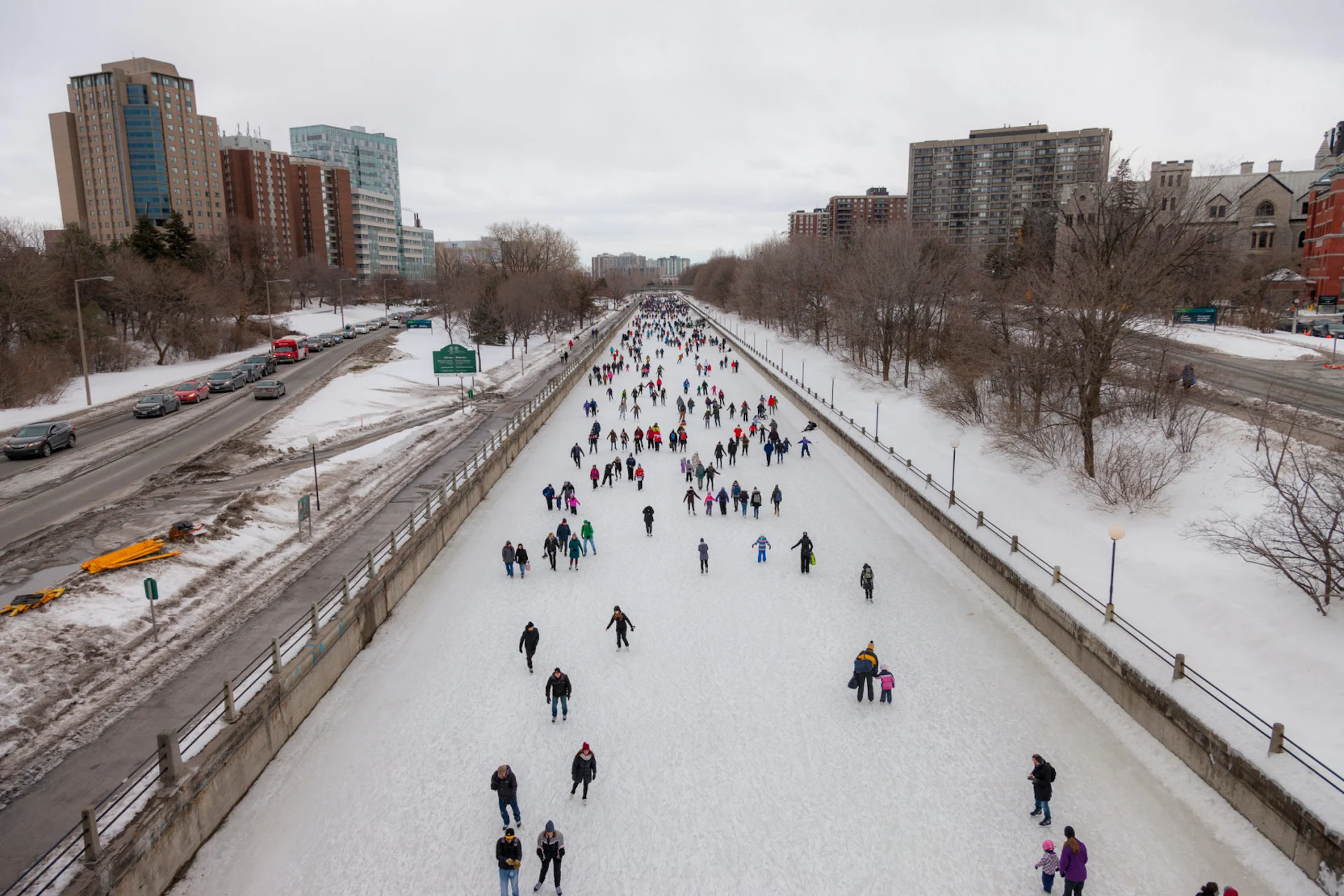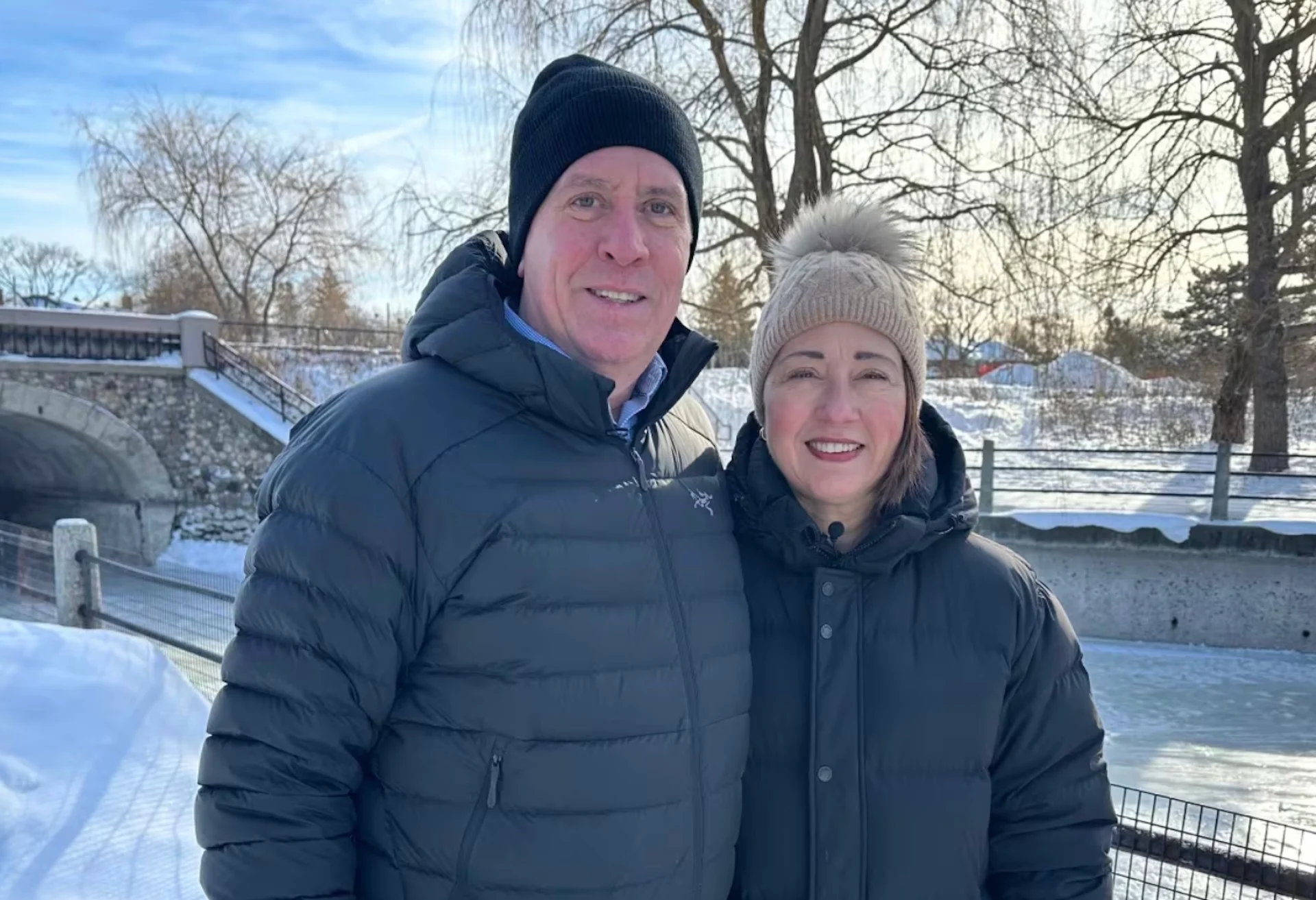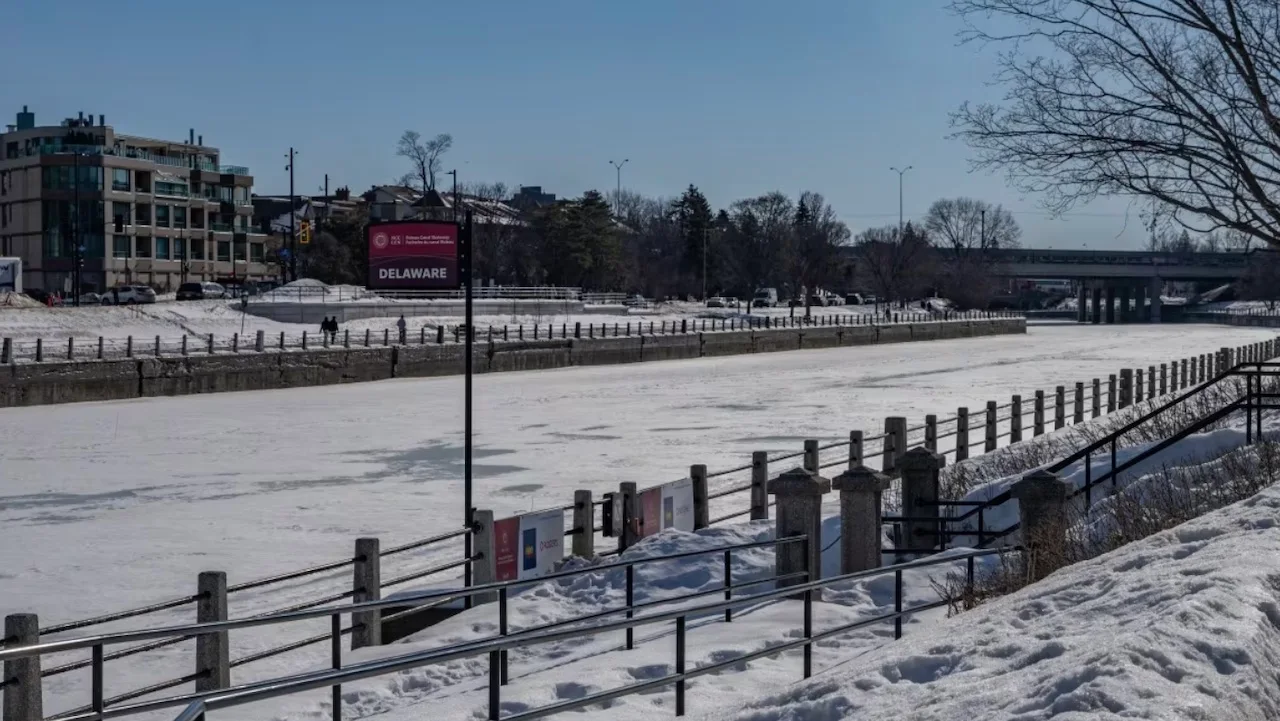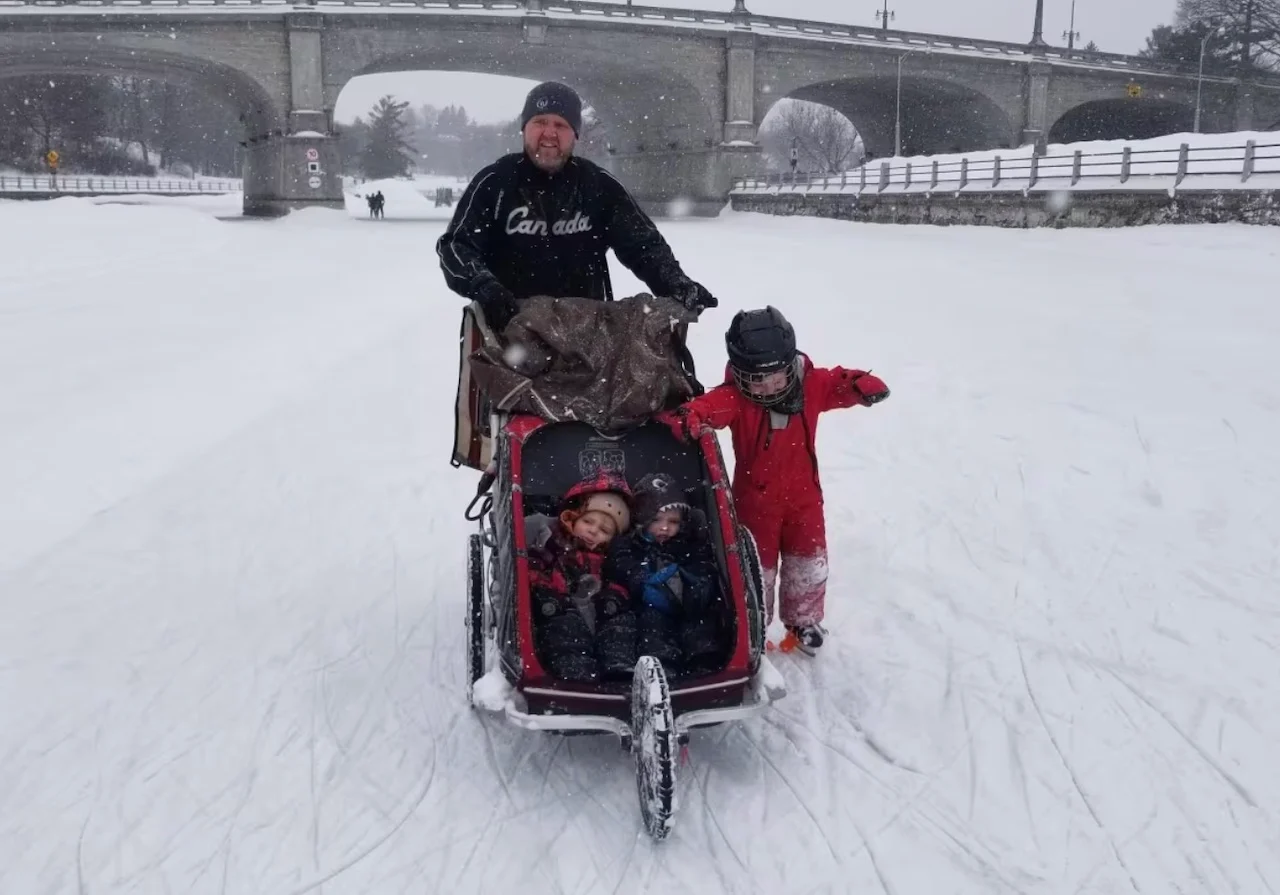
What's an Ottawa winter without the Rideau Canal Skateway?
Every year, Fred Close and Michele Teniere skate on the Rideau Canal to commemorate their engagement on it more than 30 years ago.
Back then, Close strategized with a work colleague to set up a table with a linen cloth near the bridge over Patterson Creek, coupled with a bottle of champagne and a cheesecake. In the midst of a winter snowstorm, he managed to convince Teniere to go on an evening skate.
At first, Teniere thought the table was part of Winterlude. Then Close sat her down, got on one knee and popped the question.
RELATED: Snowstorms complicate hopes for Rideau Canal skating season
Proposing on skates was "very tricky," Close said. "But I managed to do it…. It was a very magical moment for us."
On the 10th and 20th anniversary of their engagement, Close and Teniere recreated the scene at the same spot on the ice. Between those years, they would skate on the ice to commemorate the proposal.
Last year was the 30th anniversary of their engagement. But the skateway never opened, blocking their annual event that, until that point, had gone uninterrupted.
"It was very sad," Teniere said.

Fred Close and Michele Teniere got engaged more than 30 years ago on the Rideau Canal Skateway. Last year's skateway closure stopped them from commemorating their engagement anniversary in their usual tradition. (Ryan Garland/CBC)
Close and Teniere are worried about what Ottawa winters could be like without the skateway. They're among several people who expressed concerns over the skakeway's future as a business hub, tourist hotspot and place to create meaningful memories.
Adam Malmberg, who grew up near the skateway, fondly remembers late night skates with his wife and friends. After becoming a dad, Malmberg would skate with his children, sometimes pushing them in a stroller or travelling with them along the skateway to school.
"Where else can you say you've done something like that?" he said.
Malmberg is also the co-founder of Dunrobin Distilleries. Last year, the company was going to have a shack on the ice to serve liquor to skaters, which he saw as a chance to create a unique experience for the hundreds of thousands of people who usually flock to the skateway.
"We want to raise somebody's experience, whether it's their first time or hundredth time on the canal," he said.
But Malmberg never got that chance — and last year's closure of the canal cost the distillery thousands of dollars, he said. To make matters worse, he lost an important skating season with his kids.

Puddles can be seen on the Rideau Canal Skateway in February of last year. The skateway was closed for the entire season because of warm, wet weather. This year hasn't seen enough cold weather yet to open, as the ice needs to be roughly 30 centimetres thick. (Mathieu Theriault/CBC)
For Malmberg, a winter without the skateway is like "hot chocolate without marshmallows" or "a s'more without chocolate," he said. "There's that absence that you feel when you're part of Ottawa and you've been doing this your entire life."
Sharing the canal with friends and family
Yiming Liu, who moved to Ottawa from Vancouver, said she understood the skateway to be a rite of passage. If you survive the city's harsh winter, you have to skate, she remembers being told by her friends.
Her first experience on the skateway involved "crawling on my knees because I couldn't stand on the skates, but that was also a really memorable and lovely experience," Liu said.
When the skateway didn't open last year, Liu said she was disappointed and found the whole experience "very sobering."

Yiming Liu, who moved to Ottawa from Vancouver, says the canal not opening last year was a sobering experience. (Matthew Kupfer/CBC)
When her friends consider coming to Ottawa, Liu said they're more inclined to visit in the summer, but she encourages them to visit in the winter. If they do, she takes them to skate on the canal and get a BeaverTail.
But without the skateway, Liu said she may encourage her friends to come in the summers instead.
When their friends come from out of town, Close said he and Teniere will bring them to the canal, to share "a big part of our life."
Last year's closure was "heartbreaking on multiple levels," Teniere said. Not only did it affect their annual proposal celebration, but it also meant they couldn't enjoy a winter on the canal with friends and family.
"That's really a big part of what we enjoy doing — sharing our love of the canal and this city with other people in our lives," she said.
Worried for the next generation
The biggest concern Teniere has is whether her potential grandchildren will get to experience the skateway the same way she, Close and their two daughters have over the years.
"Will they be able to experience the joy that we have skating on the canal [or] enjoying the Winterlude festivities outside and not having to be inside?" Teniere said, adding it would be "very sad" if those activities were lost to the next generation of their family and beyond.

Adam Malmberg, co-founder of Dunrobin Distilleries, grew up close to the canal and has fond memories of late night skates with his wife, friends and children. (Submitted by Adam Malmberg)
Malmberg said his children's experience on the skateway will be different than his own, just as his experience was different compared to his parents.
"I think we have to adapt to everything we're around and how things are evolving and changing," he added.
But he is worried that he'll be part of one of the last generations to experience the canal.
"You don't want to be that generation that says, 'Back in my day we used to skate on the longest skating rink in the world," he said. "That's a fear for sure."
As for people in the future who may want to propose to their significant others on the ice, Teniere said to give it a shot.
"But have a backup plan," she added.
The skating season typically runs from January to early March, but it all depends on the weather. Skateway officials are hoping to open to the public this year when the ice gets roughly 30 centimetres thick.
"To get there, our ice experts need about 10 to 14 consecutive days of temperatures between -10 C and -20 C," according to the National Capital Commission (NCC) website.
WATCH: Science behind ice safety: Measuring thickness
Header image courtesy of Mark Spowart/Getty Images.
This article, written by Benjamin Lopez Steven, was originally published by CBC News.










